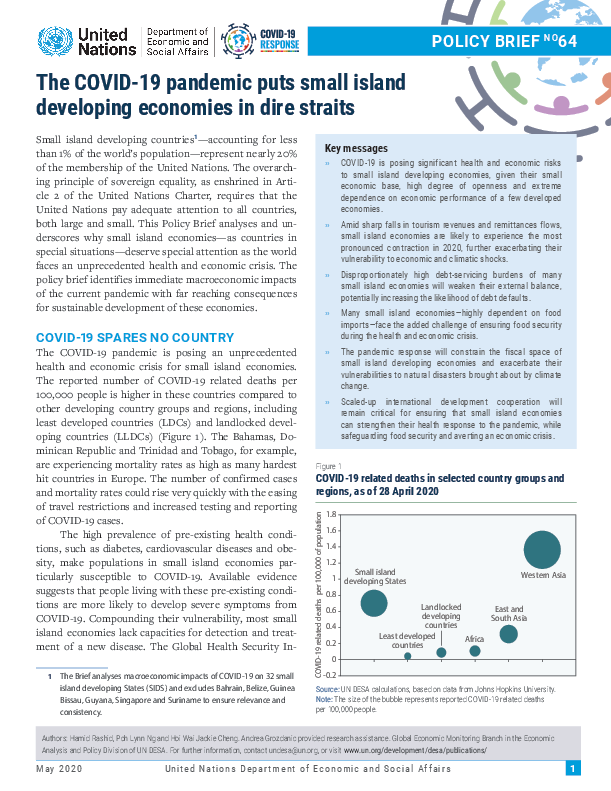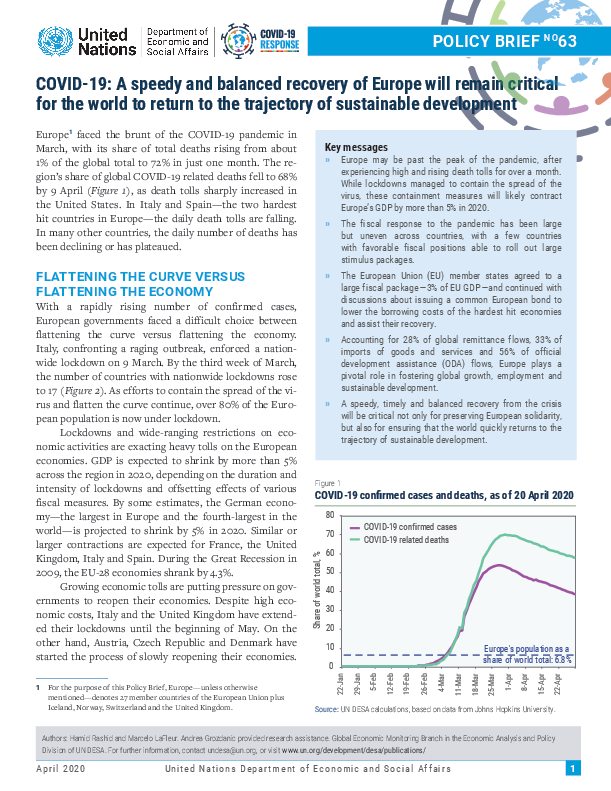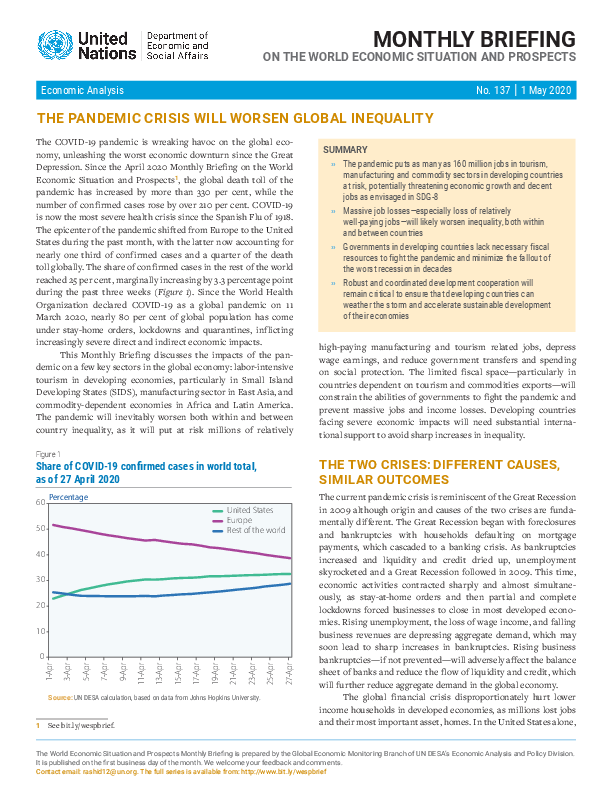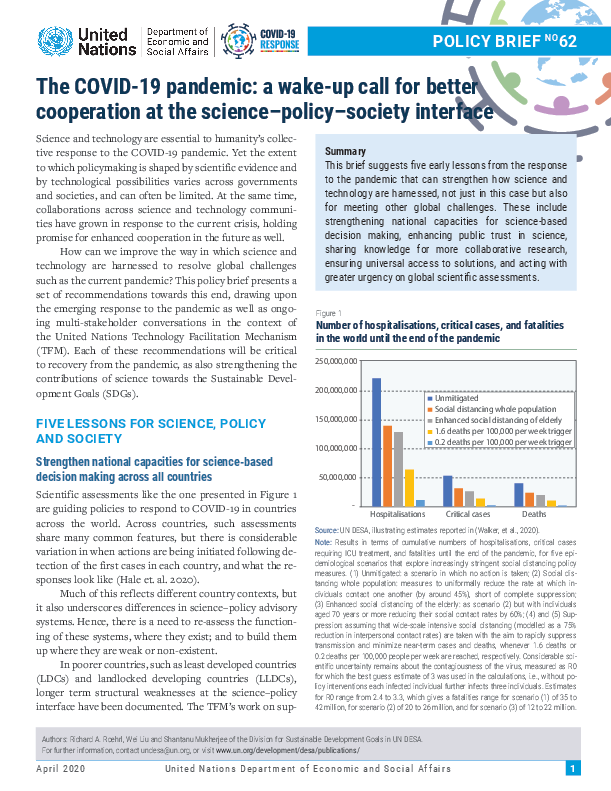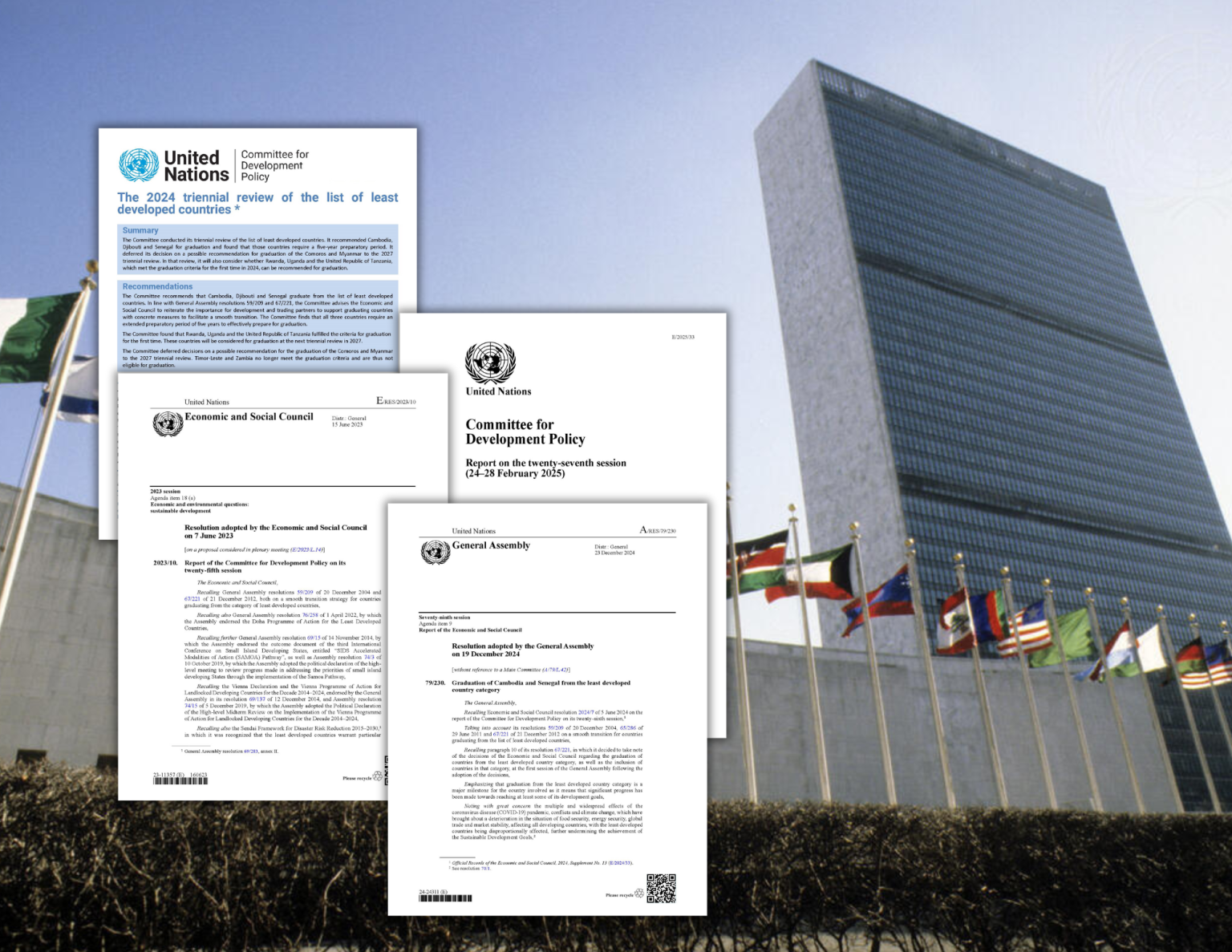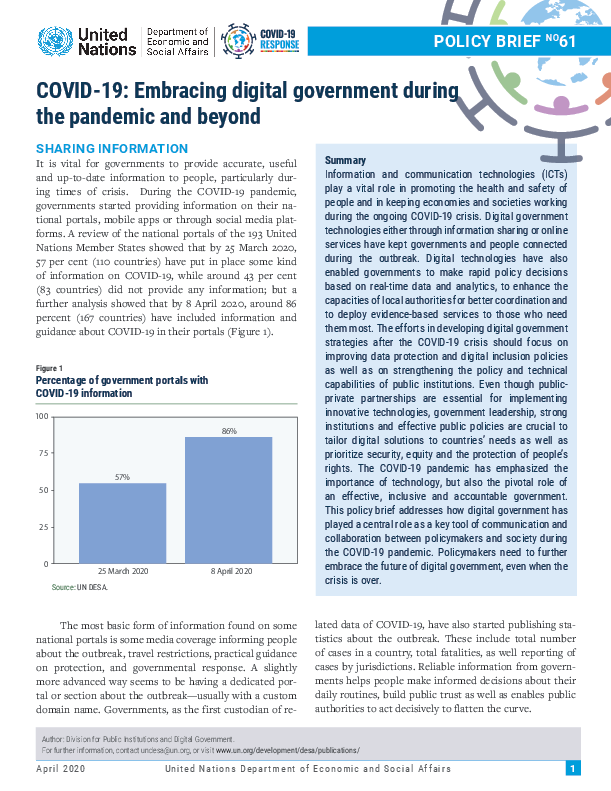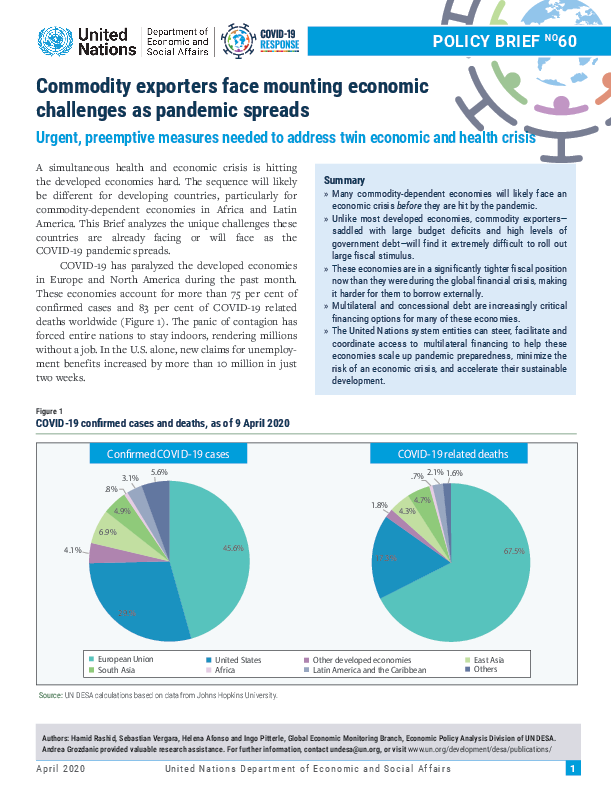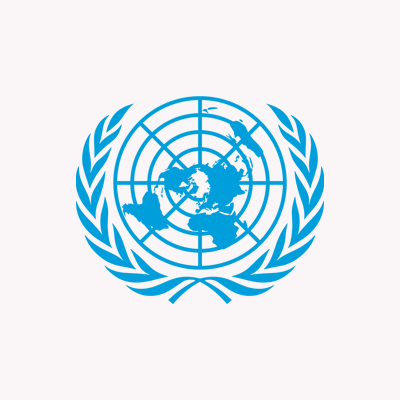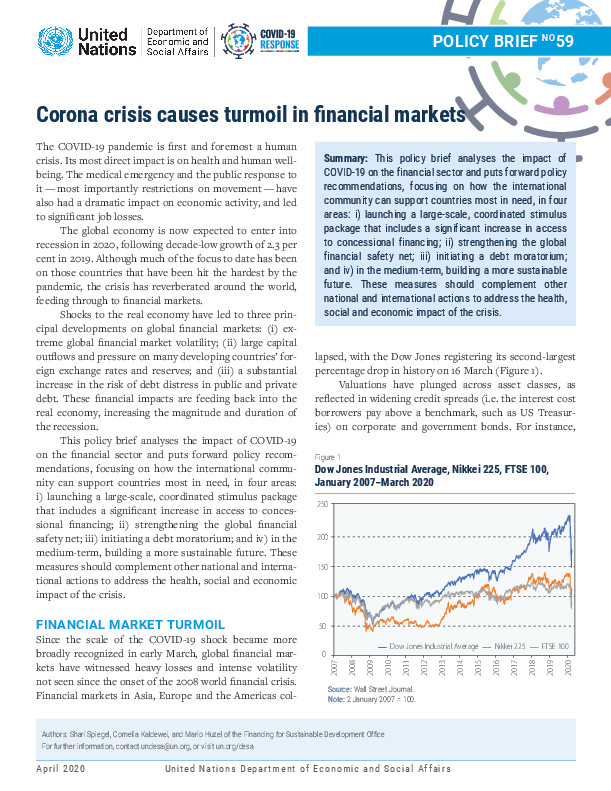Publications
Displaying 41 - 50 of 65
remain
critical for ensuring that small island economies
can strengthen their health response to the pandemic, while
safeguarding food security and averting an economic crisis.
عربي, 中文, English, Français, Русский, Español CDP excerpts on the report by theme Accelerated action and transformative pathways: realizing the decade of action and delivery for sustainable development
 Welcome to the United Nations
Welcome to the United Nations
